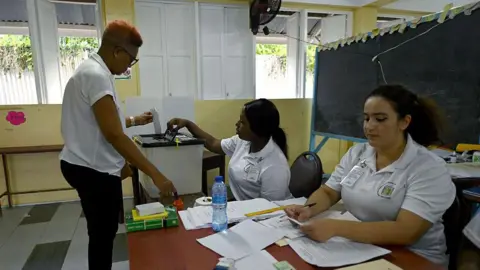An appeals court in Algeria reaffirmed on Tuesday a five-year prison sentence for Boualem Sansal, a prominent writer with dual Algerian and French citizenship, whose criticisms of the Algerian government and Islamic extremism have drawn ire. The court's decision deepens the rift between Algeria and France, a country that ruled Algeria as a colony for over a century until the brutal war of independence concluded in 1962.
Sansal, who was born in Algeria but became a French citizen in 2024, has faced charges of undermining Algeria's national unity due to his public comments favoring Morocco in a territorial dispute. Following his conviction in March, he has been incarcerated for over seven months. Algerian President Abdelmadjid Tebboune suggested in a prior interview that Sansal's case is part of a larger conspiracy aimed at destabilizing Algeria.
France's Foreign Ministry has reacted strongly, labeling the ruling “incomprehensible and unjustified” and calling for Algeria to show mercy towards Sansal, who is approximately 80 years old and suffers from cancer. His plight has drawn attention from French intellectuals and writers who argue that his conviction is a suppression of free speech, a claim supported by his publisher, Antoine Gallimard. Gallimard reported that Sansal remains in relatively good spirits despite his incarceration, and that his legal counsel has suggested he may consider accepting the verdict in hopes of future amnesty.
The historical context of this case underscores existing tensions between Algeria and France, fueled by recent diplomatic friction over issues such as the Western Sahara dispute. The situation continues to evolve, raising important questions about freedom of expression and the legacies of colonialism that haunt both nations.




















